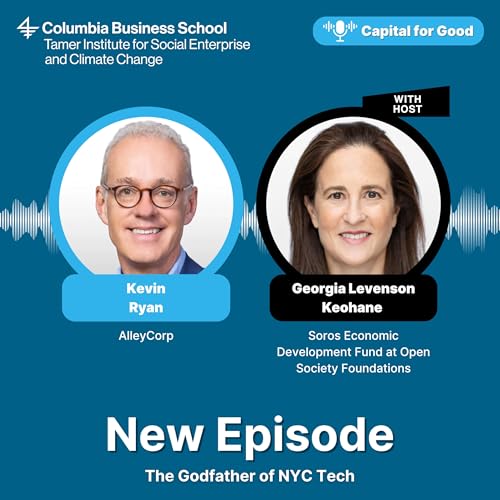In this episode of Capital for Good we speak with veteran investor and climate activist Tom Steyer. Over twenty-five years, Steyer founded and ran Farallon Capital Management, a $36 billion multi-strategy global investment firm. In 2012 he stepped away from Farallon to dedicate his time, resources, and energy to mobilizing climate action: clean air and energy initiatives in California; climate focused ballot initiatives in numerous states; youth voter engagement and mobilization (NextGen America); and a 2020 Presidential run largely focused on the climate crisis. Today, Steyer is the co-executive chair of Galvanize Climate Solutions, a climate-focused investment firm, and the author of Cheaper, Faster, Better: How We'll Win the Climate War.
We begin the interview by discussing Steyer's parents, both civically engaged members of the Greatest Generation. In his father's case, a lawyer who served in the Navy and then as a prosecutor at Nuremberg. Steyer describes World War II as a crucible moment for Americans — galvanizing collective action and a sense of being part of something larger than oneself. For Steyer, the climate fight is a similar calling.
We discuss why, despite current political headwinds, the momentum behind the climate revolution — the transition to net zero via the development and adoption of low carbon technologies — is very much alive, well, and accelerating. In Steyer's view, this is because of the dramatic decline in costs of renewables — solar and wind are now the cheapest forms of energy — and because applied technologies like batteries and electric vehicles continue to improve in quality and cost, driving demand. "This is not eat your gruel," he says. "It's cheaper, faster, better. When you put eight billion people on a problem, they solve it." We also explore promising new technologies coming on-line, from geothermal energy and AI optimization of the electric grid to geosynthetic seawalls.
While these new technologies will enable the transition, Steyer notes that "climate capitalism" also requires new rules and policies to speed innovation and deployment; ultimately this means paying for carbon pollution. He argues that despite objections to the idea of a "tax," people are already paying — in the form of destruction to homes, businesses, livelihoods, health — though often it is the most vulnerable, those who have contributed the least to the problem, in the United States and around the world, who bear the cost.
We conclude with a call to action. Historically, Steyer reminds us, "we've chosen to do the right things, even when they're hard, and that has always paid off for us, and it will always pay off for us. That is who we are, and that is where this world is going. This revolution is happening. Our job, as Americans, is to be at the forefront."
Thanks for Listening!
Subscribe to Capital for Good on Apple, Amazon, Google, Spotify, or wherever you get your podcasts. Drop us a line at socialenterprise@gsb.columbia.edu.
Mentioned in this podcast:
Cheaper, Faster, Better: How We'll Win the Climate War, (Spiegel and Grau, 2024)
 44 m
44 m 41 m
41 m 32 m
32 m Jun 12 202526 m
Jun 12 202526 m 30 m
30 m 30 m
30 m 33 m
33 m 33 m
33 m
